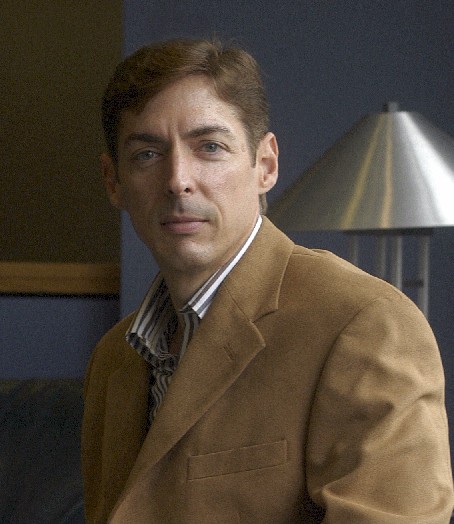York professor presents “Humanity 2.0”: Our Future with Technology

York College Professor Dennis Weiss visited Gettysburg this week to discuss the philosophical thoughts behind humanity and technology’s impact on the concept of humanity. Photo Credit: York College of Pennsylvania
By Chris Dellana, Contributing Writer
York College professor Dennis Weiss came to the College on Oct. 29th to discuss the nature of what it means to be human.
Professor Weiss, once a faculty member and now three-year-consecutive visitor of the College, expanded on a lecture he gave last fall about humanity. He began his discourse, “Humanity 2.0,” before an audience of mostly faculty and philosophy students, all sardined into Weidensall 301.
“What does it mean to be a human being twenty or thirty years hence?” he asked rhetorically, pacing in the narrow space of rug that he had been allotted.
He asked everyone in the room to imagine where they would be and what life problems they would face in ten years, then twenty, and finally thirty years.
For the students in the room, he claimed, the cognitive exercise is seldom employed because, as products of our culture, we have been inundated, Weiss said, by technology and have allowed this to mesh with the very organic nature of our lived experience.
He highlighted three ideas that were central to his theory of humanity.
Citing anthropologist Sherry Ortner, he said that human beings, across all demographic, chronologic, and geographic spreads, seek the answers to the same two questions: ‘What am I?’ and ‘What is my place in the cosmos?’
Next, bringing British philosopher Mary Midgley into the discussion, he illustrated that there are certain essential myths by which we all live and by critically examining the deep-seeded motivations of these, we may discover what we truly value.
In his final point, he referenced several different philosophers and social scientists who put stock in the effect that converging technology has on modern society.
The responses to this encroachment of technology have sparked various media interpretations and have provided Hollywood with ample food-for-thought as they bring to life the utopias and dystopias of tomorrow’s robot-dominated world.
The reality, Weiss stressed, is much closer than we think. Men like Kevin Warwick believe that our world is limited by the weakness of our inborn faculties and, like others, believes it is almost a moral imperative that we seek to better our perception by “building upon biological substrate.”
The promise of nano-, bio-, info-, and cogno- technologies makes would allow for the betterment in the areas of productivity, societal outcomes, and standards of living. The question he poses, however, is “At what expense?”
Weiss, to this end, further referenced others like Bill Joy who believes that the eventual convergence of technology – a process he predicts will be entirely completed by 2045 – will eventually phase out human beings until we face “extinction if we are not careful.”
As the conservative and libertarian sides of this debate continue to argue about the value and enduring legacy of technology, there remains at least one certainty: technology is not going away.
Professor Weiss, in concluding his lecture, urged the assembly before him to think critically and dialectically about our role as the “product and questioning counterpart of nature” because, he said poignantly, “life is too important to leave to chance.”
